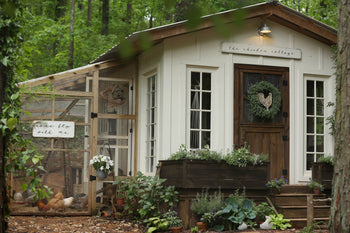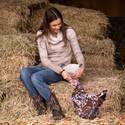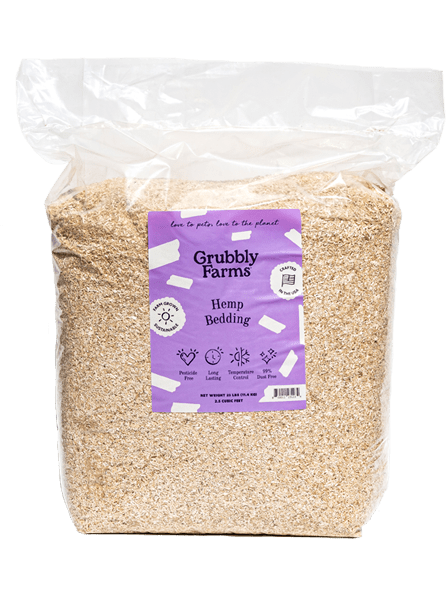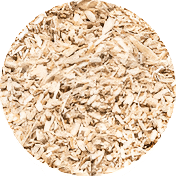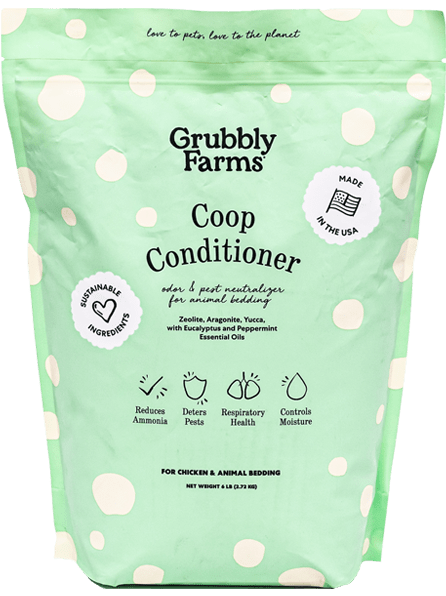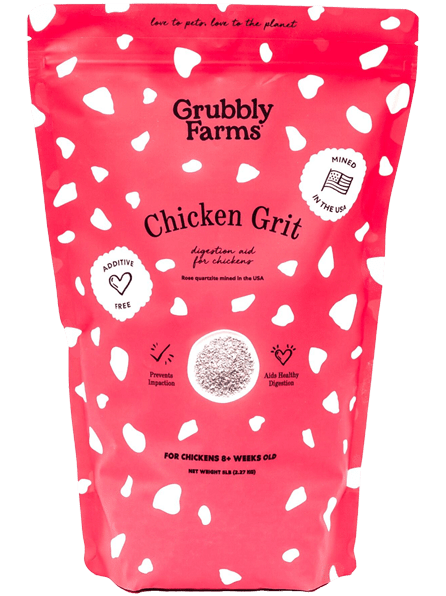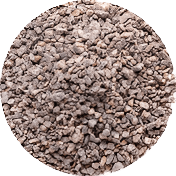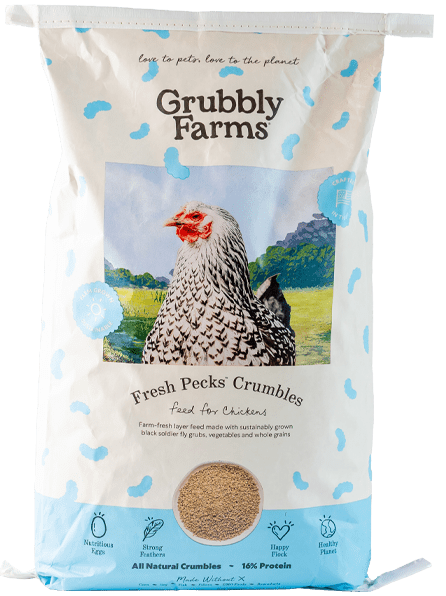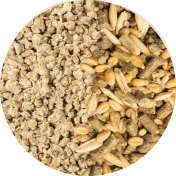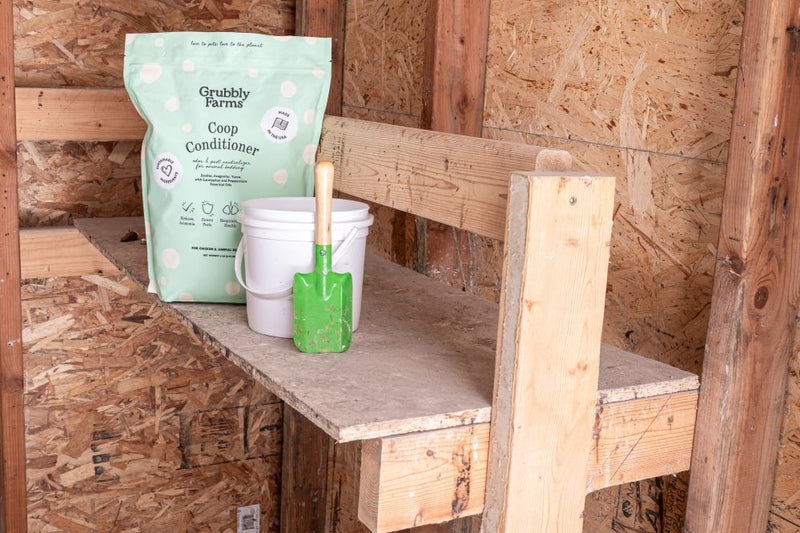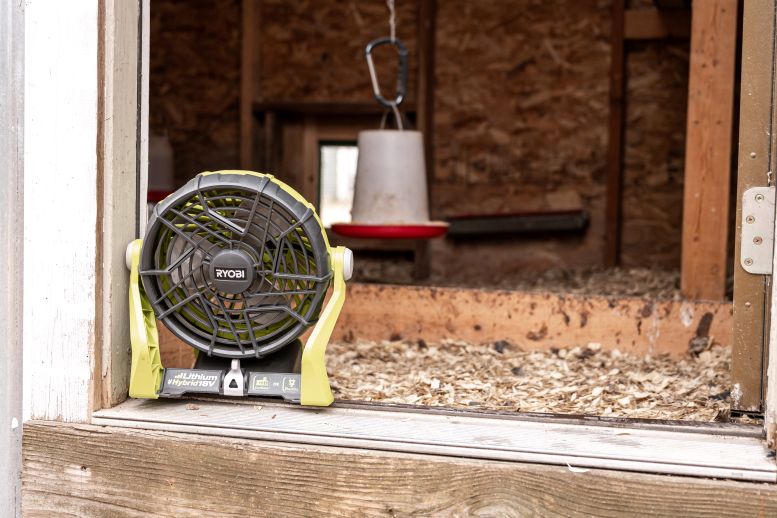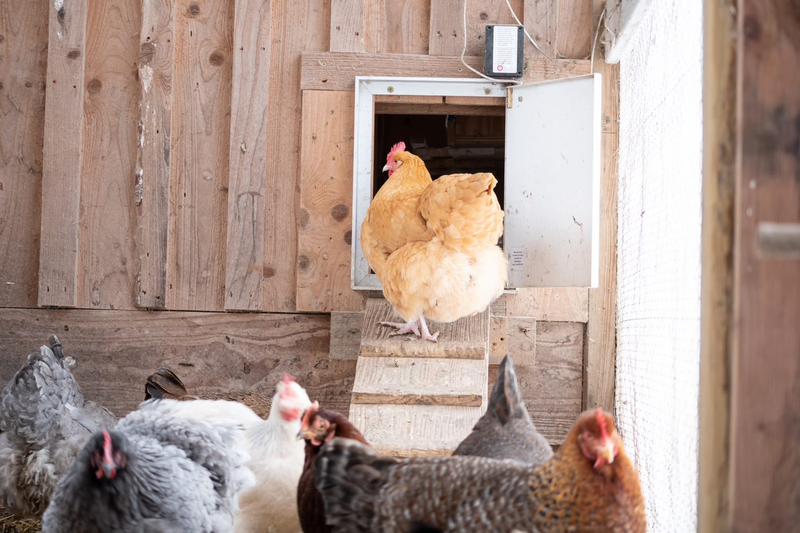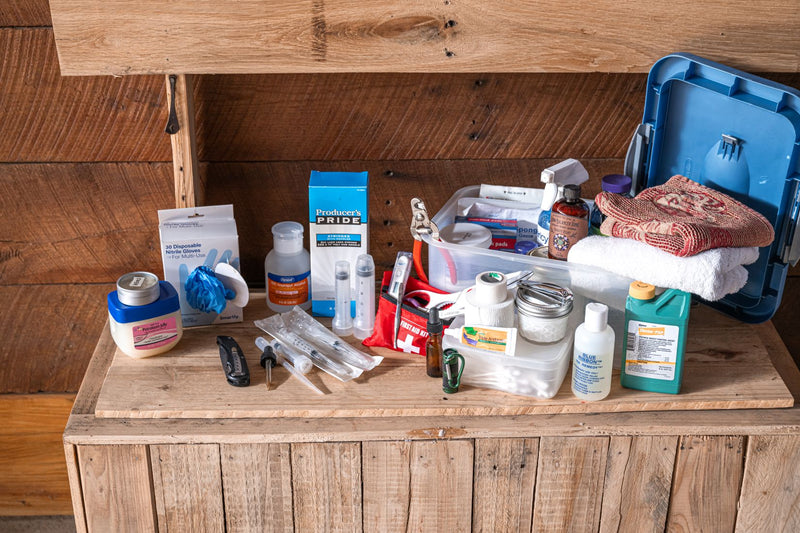Like any pet or farmyard critter, raising chickens requires certain tools and equipment to ensure your flock stays healthy, safe, and productive. You will need tools that can help you care for your flock daily and maintain a safe, clean living environment for your chickens. Other handy supplies will help you stay organized and prepared for whatever adventures you have as you raise your backyard flock. Daily flock care, adjusting to seasonal changes, implementing biosecurity, and working on coop maintenance all become easier when you have the right supplies and equipment for the job!

Daily Use Chicken Coop Supplies
To start with, you will need a secure, weather-proof chicken coop for your backyard flock. But once you have the coop, there are some other essential supplies that you will need to care for your flock on a daily basis.

Feeders and Waterers
Feeders and waterers should be at the top of the list after you get your chicken coop! Obviously, feeders and waterers will ensure your flock gets the nutrition and hydration they need on a daily basis.
Choose a feed and water system that works for your coop set-up. Gravity feeders are helpful for ensuring your flock has access to food all the time, and automatic waterers ensure that your flock has water at all times. Hanging feeder and water systems are helpful for keeping the feed and water clean.
Make sure you have enough feeders and waterers for the size of flock you are raising. The feeder should also be protected from the elements (rain, snow) and kept in an area that won’t attract pests like rodents and wild birds.
Supplement Dispenser
A supplement dispenser will be needed for providing your flock free-choice supplements, like supplemental calcium or grit. You may need several supplement dispensers depending on how many free-choice supplements you will need to provide for your flock. A simple solution for supplement dispensers is galvanized automatic rabbit feeders. They can easily be mounted to the chicken coop wall and filled from the top.
Thermometers or Hygrometers
Thermometers and hydrometers are helpful for monitoring the coop temperature and humidity. While not essential, thermometers and hydrometers may be especially helpful if your region experiences extreme temperatures in the summer or winter. The internal temperature of the chicken coop is usually different than the environment temperature, so having a thermometer inside the coop allows you to monitor if the coop is getting too warm or too cold. A hydrometer can help you monitor the humidity in the coop, which can affect the real feel of the temperature within the coop.
Nesting Box Liners and Bedding
Your chicken coop should have nesting boxes where the hens can lay their eggs. The nesting boxes will need a liner or bedding to make them attractive for nesting and to prevent egg breakage. You will want an easy to clean nest bedding option that can easily be replaced if it gets soiled. There are lots of options for bedding, but we prefer Hemp for its long lasting and moisture controlling properties.

Egg Collection Tools
Don't underestimate the importance of egg collecting tools! You will want an easy way to transport fresh eggs from the coop to the kitchen and then a clean storage solution for keeping the eggs fresh until you are ready to use them.
Egg collecting baskets can come in various shapes and sizes. You may also consider an egg collecting apron, which is a simple way to transport the eggs while still keeping your hands free. Soft-sided egg collecting containers or baskets are the best for preventing eggs from cracking when they are carried from the coop to the kitchen.
Once in the kitchen, you should store the eggs in a clean carton or egg storage rack.
Roosting Bars
Roosting bars are an essential part of the chicken coop. Chickens naturally seek out high places to sleep at night, so having roosts in the coop encourages your flock to roost in the coop every evening. Two common styles of roosts are ladder roosts and bar roosts. You may also want to install a method of collecting the nightly droppings that collect under the roosts during the night. Droppings boards are a tool to help with coop clean up every morning.

Enrichment & Toys
Enrichment and toys are often overlooked supplies, but they can help you raise a happy, healthy backyard flock. Furnishing the chicken coop enclosure with enrichment will encourage your flock to be active throughout the day and can prevent boredom. You can easily DIY many forms of enrichment for chickens, or you can shop for poultry toys online or at your local farm store. Here are some ideas for chicken enrichment:
- Swings
- Logs/branches
- Perches
- Hanging treat balls
- Suet cages
Coop Lighting & Ventilation
When setting up the chicken coop, you will need to make sure it has good ventilation and you may also need to invest in some simple lighting solutions for the coop. Ventilation often doesn’t require a whole lot of investment, simply make sure the coop has properly placed windows and/or vents near the roofline. The key is making sure there is airflow within the coop without it being drafty.
For lighting, you will want to choose soft, warm lights. Rope lights are an inexpensive option that you can mount within any style of chicken coop. You could also use solar lights if you don’t have electricity at your coop. Having lights in the chicken coop can make cleaning the coop much easier and they are necessary if you plan on providing supplemental lighting during the winter months.

Automatic Door Opener (Optional)
An automatic chicken coop door is not a required chicken keeping tool, but it is certainly helpful if you like to travel or don’t want to worry about closing your flock in their coop every single night. Most automatic chicken coop doors can be programmed to open at dawn and close at dusk, or you can usually set them to open and close at specific times.
There are many automatic chicken coop door options available so you can find an automatic door that works with your chicken coop. Some automatic doors can even be set up so that they are solar powdered or battery powered, which eliminates the need for electricity at the coop.
Cleaning and Maintenance Supplies
Now that you have the tools and equipment needed for setting up a functional chicken coop, you should also consider what you will need to maintain your flock and keep the coop clean.

Coop Cleaning Tools
The tools you use to clean your chicken coop may depend on the style of coop you have and what methods of cleaning you implement. However, there are some basic tools to have on hand that will make cleaning any coop simple and easy.
Scrapers, putty knives, or small garden shovels can be used for scraping droppings off droppings boards every morning. A large shovel can be used for removing soiled bedding from the coop. Heavy duty brooms and dust pans are helpful for removing dust in the coop and sweeping any floor space in the coop. Land-handled brushes can be used when you are giving the coop a deep-cleaning and need to scrub roosts, corners, or other hard-to-reach areas. A shop-vac can also be helpful for vacuuming cobwebs, dust, and other debris in the coop.

First Aid Kit
A well-stocked poultry first aid kit is a must-have tool for any chicken keeper. Find out what you should keep in a poultry first aid kit in this comprehensive guide: Chicken First Aid Kits- Essential Supplies Every Flock Needs. It will walk you through the essential first aid supplies as well as additional items you may want to have on hand for keeping your flock healthy and addressing any issues as soon as they arise.
Disinfectants and Deodorizers
Disinfectants and deodorizers are needed for keeping the coop clean and your flock healthy. Disinfectants can be used when cleaning drinkers, feeders, or the chicken coop. A simple poultry-safe disinfectant to keep on hand is plain white vinegar. Vinegar is naturally acidic and will help kill bacteria and pathogens on surfaces.
You may also want to have a coop deodorizer on hand. Deodorizers can help extend the life of the chicken coop bedding and will keep the coop smelling fresh by controlling ammonia. A good option for coop deodorizers is anything that contains poultry-safe lime, such as Grubbly Farms Coop Conditioner.
Gloves and Protective Gear
Get yourself some chicken chore gloves and footwear to keep you and your flock safe! Rubber gloves or any kind of work gloves are helpful when you need to do dirty cleaning or handle dirty birds. A dust mask or respirator may also be handy when you are giving the coop a thorough deep cleaning since chickens naturally produce dust that collects in the coop.
You should also have a designated pair of chore boots. These will be boots that you only wear around your chickens and that don’t leave your property. This is a good biosecurity practice to prevent introducing harmful pathogens to your flock from outside sources.

Composting Tools or Waste Disposal Options
Some other helpful pieces of equipment to have when maintaining a clean coop are composting tools or a way of managing your flock’s waste. Chicken poop makes great compost, so have a way to manage it so you can get rich compost from your flock’s waste!
Manure forks or a shovel can be helpful for removing bedding and chicken poop from the coop. A wheelbarrow or large bucket can be helpful for transporting the waste to a designated area where you will allow it to compost. You can even build composting bins to help keep the composting waste contained.
Predator Protection and Coop Safety Tools
The coop is furnished, you have supplies for maintaining and cleaning the coop, now it’s time to take a look at what you need for keeping your backyard flock safe and protected. The basics of predator-protection are a secure coop and an enclosed chicken coop run, so here are some supplies that can make that happen!
Secure Latches and Locks
Any doors on the chicken coop must have a secure latch or lock. Windows that can be opened and closed must also have a secure latch. Predators can get smart when it comes to simple door handles, so using multi-step latches can make it more difficult for predators to enter the coop. Double door systems or locking doors can keep the coop secure as well. Automatic chicken coop doors are often designed to be completely predator-proof to keep your flock safe at night.
Carabiners and other locking mechanisms can add an extra level of protection to certain areas of the coop. Carabiners are also helpful to have on hand for hanging feeder and water systems.

Motion Sensor Lights or Alarms
Motion sensor lights and alarms can be simple ways of deterring night predators or startling them away from the coop. Another light-based deterrent system, like NiteGuard, uses a small blinking light to make predators feel like they are being watched. Predator protection systems like these are often battery-powered or solar-powdered.
Wire Reinforcements and Aprons
You may also decide to reinforce the chicken coop enclosure or chicken coop windows with hardwire cloth or welded wire fencing. Hardwire cloth and welded wire fencing are sturdier options than chicken wire. Chicken wire can easily be bent or broken. Hardwire cloth has the added advantage of smaller openings, which can help keep out small predators. Both hardwire cloth and welded wire fencing are a heavier gauge wire that doesn’t bend or break easily.
You can secure hardwire cloth over any windows or ventilation vents in the chicken coop. Hardwire cloth or welded wire fencing can also be installed as a dig-proof apron that gets buried around the perimeter of the chicken coop enclosure. This will help prevent predators from digging underneath the fencing and entering the chicken run.
Seasonal Chicken Coop Supplies
If you live in an area that experiences seasonal weather changes, you will need to consider some seasonal chicken coop supplies. These supplies will help your flock adapt to the changes in season, whether that be cold winter weather or hot summer temperatures.
Winter Essentials
If your region experiences cold winter weather, there are some coop supplies you will need to get in order to help your flock stay healthy through the winter and to make winter chicken chores easier for you. Here are some winter chicken keeping supplies to get:
- Heated waterers
- Extra insulation/tarps
- Coop-safe heaters
A heated water system will ensure your flock has access to drinking water even in freezing temperatures. Tarps or heavy-duty plastic can be used to shield portions of the chicken run so your birds can get outside but still be protected from the elements and windchill. Coop-safe heaters may be needed in regions that experience extreme winter temperatures. Generally radiant heaters are the safest option for keeping the coop comfortable without creating a fire hazard.
Summer Supplies
Chickens can handle cold weather better than hot weather, so having some supplies on hand that will help your flock handle summer heat is essential. Here are some summer chicken keeping supplies:
- Shade tarps
- Ventilation fans
- Electrolyte supplements
Light-weight tarps can help create shaded areas for your birds to rest in. Just make sure the tarps are not dark-colored, otherwise they will absorb heat from the sun and create more of an oven-effect. Ventilation fans in the coop and enclosure can help stimulate air flow and remove hot air from the coop.
Electrolyte supplements can help prevent dehydration and are needed when addressing heat stress in your flock. Most electrolyte supplements are formulated to be mixed into your flock’s drinking water, so it is an easy supplement to incorporate into your flock’s summer diet.
Storage and Organization Tools
Feed bins with lids are helpful for storing chicken feed and supplements in to keep them away from the elements and rodents. Galvanized tins are sturdy and rodent-proof. However, you may consider plastic storage bins if your area experiences extreme summer temperatures which may cause the galvanized bins to ‘sweat’ or condensate and get the chicken feed damp.
Having an area within your chicken coop for storing chicken keeping supplies is helpful, that way you have access to all your supplies while you are out at the coop. A storage shed or dedicated ‘coop closet or cabinet’ are other ideas if you don’t have storage space in your chicken coop.
Hooks and wall organizers can be handy for hanging tools like shovels, brooms, or other coop cleaning supplies. Having a few shelves either in the chicken coop or a storage shed that are dedicated to chicken keeping supplies can help keep all your supplies in one place.

Final Thoughts: Build a Coop Supply Arsenal That Works for You
Raising chickens does require some specific tools and supplies. A secure chicken coop is a must-have, and then there are supplies you will need to furnish the coop, maintain the coop, care for your flock, and be prepared for seasonal or health issues. You can customize your chicken coop supply arsenal based on your flock size and the region where you live. It is also a good idea to regularly review your chicken keeping supplies to see if any tools need to be replaced or if any of the supplies need to be re-stocked. After reviewing this comprehensive chicken coop supplies list, you are now better prepared to have everything on hand that you will need to raise a healthy, happy flock!





